Charter school expansion, 'school choice' scholarships divide lawmakers
- BY CAITLIN R. KING AND ADAM SATRYA JACKSON
Spectators sit in the Missouri House of Representatives gallery Wednesday at the Capitol in Jefferson City. The floor debate, regarding aspects of House Bill 349, lasted for two hours.
Representative Peter Merideth, D-St. Louis, participates in the floor debate on House Bill 349 Wednesday at the Capitol in Jefferson City. During the floor debate, Merideth raised questions regarding the state budget and transportation for kids who choose to attend a private school through the program House Bill 349 would create.
Representative Phil Christofanelli, R-St. Peters, answers questions regarding House Bill 349 Wednesday at the Capitol in Jefferson City. The bill, sponsored by Christofanelli, would create a scholarship program to send children to private schools.
Representative Raychel Proudie, D-Ferguson, speaks on House Bill 349, a “school choice” bill Wednesday at the Capitol in Jefferson City. “If it’s not good enough for your kids, it’s not good enough for mine,” Proudie said in her address on the House floor. “Stop using poor kids and Black kids for experimentation.”
JEFFERSON CITY — Senate Bill 55 is chock-full of contentious education measures.
The subject of a debate that lasted until about 2 a.m. Wednesday, the bill tackles charter schools and “school choice,” teaching the Bible in public classrooms and criminalizing the teaching of sex education without parents’ written permission.
Current legislation only allows charter schools in Kansas City and St. Louis. If passed, this bill would allow them to operate “in any municipality with a population greater than thirty thousand.”
For the past five years, Missouri lawmakers have tried to expand charter schools in the state. Because of the population provision, they may have a shot. Many conservative rural lawmakers have opposed charter expansion because their school districts don’t want it, but the population cap would exempt them.
Under the legislation, another 20 Missouri cities, or 58 school districts, meet that threshold and could potentially see a charter school open.
A major criticism of charter schools is their potential to pull money away from public schools if enough students were pulled out and sent to the charters. A portion of school funding is appropriated based on the number of students enrolled. The fiscal note for the bill states that public schools will report a negative impact if this legislation were passed.
When asked about these concerns, Sen. Caleb Rowden, R-Columbia, said that “the notion that charters take money from public education is a flawed notion. … I don’t think (opponents of charter schools) are being entirely honest about what the actual ramifications are.”
Sen. Lincoln Hough, R-Springfield, disagrees. “I don’t believe in the model of a statewide charter school expansion, where a district in my community of Springfield has no say if these entities, ... often times for-profit institutions, come in.”
Along with charter school expansion, the bill also establishes the Missouri Empowerment Scholarship Accounts Program. Taxpayers would be allowed to donate to the ESA and receive a tax credit for their trouble. Students who qualify for support from the fund could receive up to $6,375 a year to attend schools outside of their district.
To qualify, students must be Missouri residents and have attended a public school full time for at least one semester. K-12 students up to 21 years old could qualify. Students enrolled in charter schools would not qualify.
The bill has expanded to include more than support for “school choice” issues.
In a narrow vote, senators agreed to add an amendment that would require schools to notify all parents that sex education would be taught and would require the parents’ written permission that their child could participate. If a school were to fail to get that written permission, they would be charged with a Class C misdemeanor.
For Sen. Andrew Koenig, R-Manchester, the criminalization “will have to change. It creates a crime. I think there are major problems with that piece of the bill.”
Another element of the bill is that it would allow Bible courses to be taught as an elective in public schools. Specifically, the bill only includes “the Hebrew Scriptures, the Old Testament of the Bible and the New Testament of the Bible.”
Lawmakers have tried to pass similar legislation for the past two years, without success.
Previous Missourian reporting on a similar bill from 2019 said that a resolution allowing the teaching of the Bible sought to clarify provisions of the 1963 U.S. Supreme Court decision in Abington v. Schempp, which bars public schools from facilitating Bible readings. But the ruling did not prohibit the “study of the Bible or of religion, when presented objectively as part of a secular program of education.”
In regard to the Bible portion of the bill, Koenig said, “It’s fine that it’s in there, but I don’t know that it’s 100% necessary.” Senate leaders have said they plan to revisit the bill no later than Monday.
Meanwhile, emotions erupted among Missouri House lawmakers over a contentious bill calling for “school-choice” expansion through ESAs.
House Bill 349 — sponsored by Rep. Phil Christofanelli, R-St. Peters —would allow families to apply for a state-supported scholarship, known as an education savings account, to send their kids to private school. The House narrowly gave initial approval to the bill.
The proposal to establish the “Missouri Empowerment Scholarships Account Program” continues long-standing efforts among Republican lawmakers to expand so-called school choice legislation in Missouri.
Christofanelli said the move, while “not a silver bullet,” is a “lifeline for children at failing schools.”
“If you are a person of means, you can send your child to the school of your choosing,” he said. “But if you do not have those means, you do not have school choice — and that’s what this bill tries to rectify.”
The education savings account bill would operate similarly to other ESAs in states around the country.
A taxpayer can make a contribution to an approved education assistance organization, which are nonprofits tasked with managing education savings accounts. Then the contributor will receive a tax credit equal to 50% of the donation, which then can be deducted from one’s tax liability for that year. If passed, the total amount of tax credits distributed to donors would not exceed $50 million in the first year, with a hard cap of $75 million.
Both sides debating agreed that COVID-19 and the myriad of obstacles schools have faced has illuminated issues within Missouri’s public school system, but some — including some Republicans — raised concerns about the lack of accountability standards and draining resources from public schools.
Rep. Raychel Proudie, D-Ferguson, passionately opposed the bill, referring to it as “trash” and asserted that she could benefit if she wanted to. She said the legislature should focus on housing discrimination instead.
“This bill helps me in my purse, but it’s not about me and my purse; it’s about doing the right thing,” she said. She took issue with the idea that most rural districts are exempt. “If it’s not good enough for your kids, it’s not good enough for mine, so stop using poor kids and Black kids to experiment on.”
Rep. Maggie Nurrenbern, D-Kansas City, said she wouldn’t support the bill because she doesn’t believe lawmakers should be diverting public funds to private schools.
Rep. Peter Meredith, D-St. Louis, said the tax credits would strain the state’s budget and drain general revenue. “Fifty million dollars of it is going to subsidize private education in cities.”
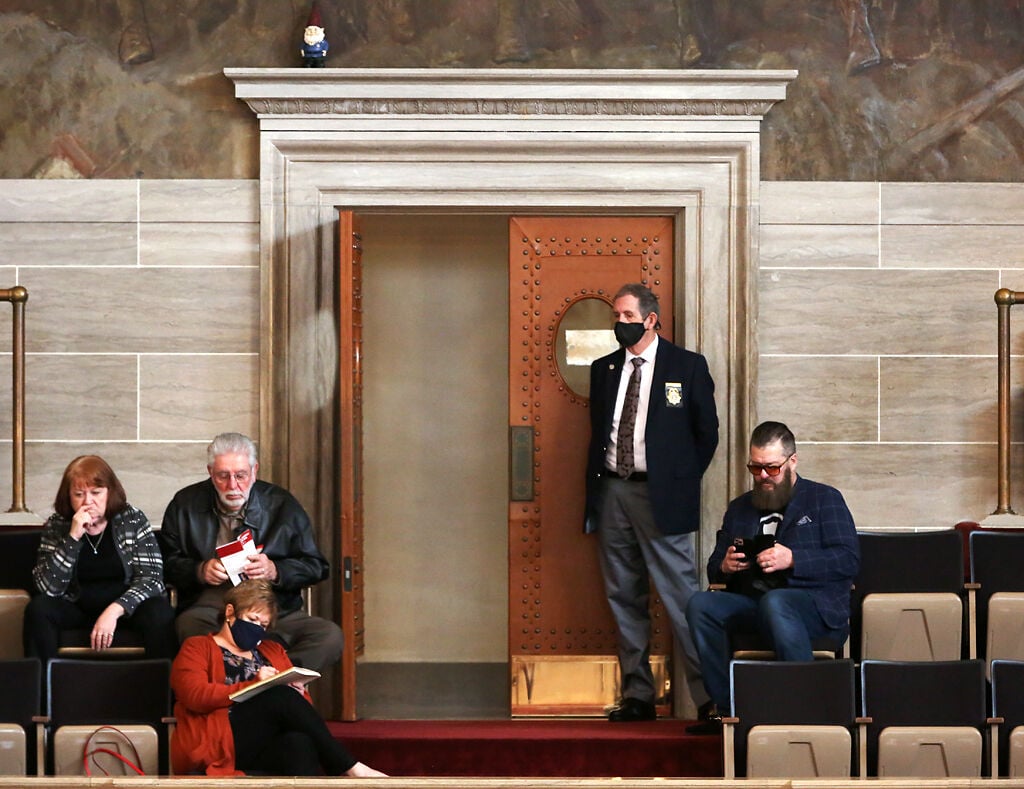
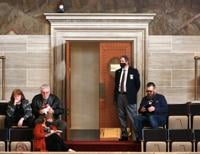
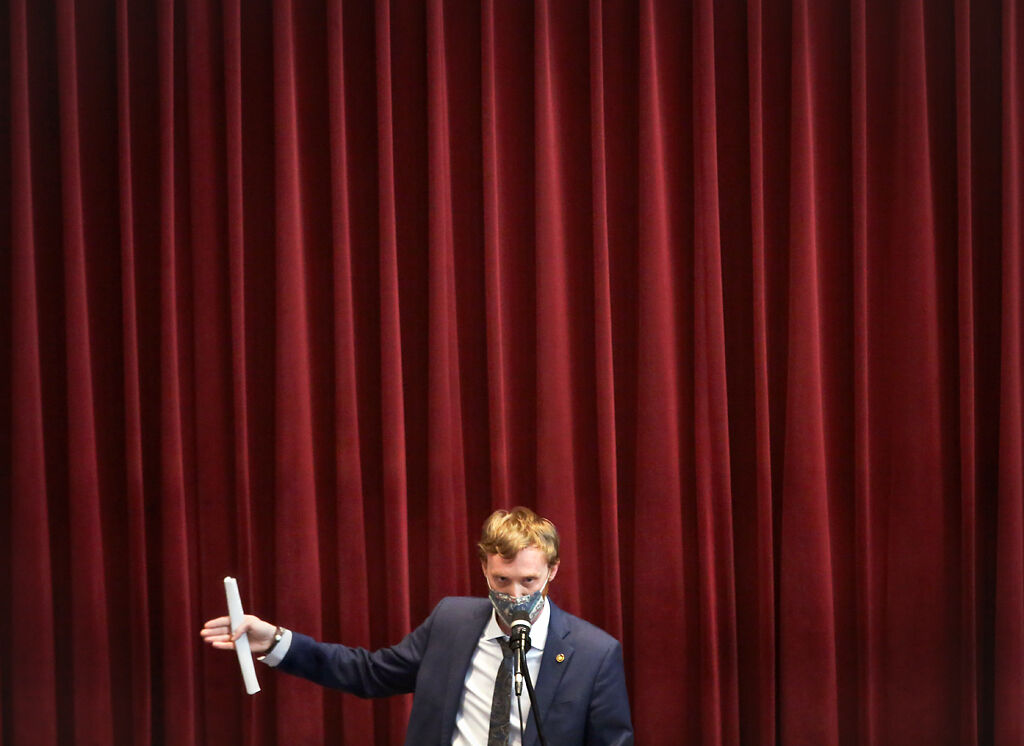


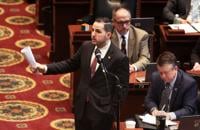
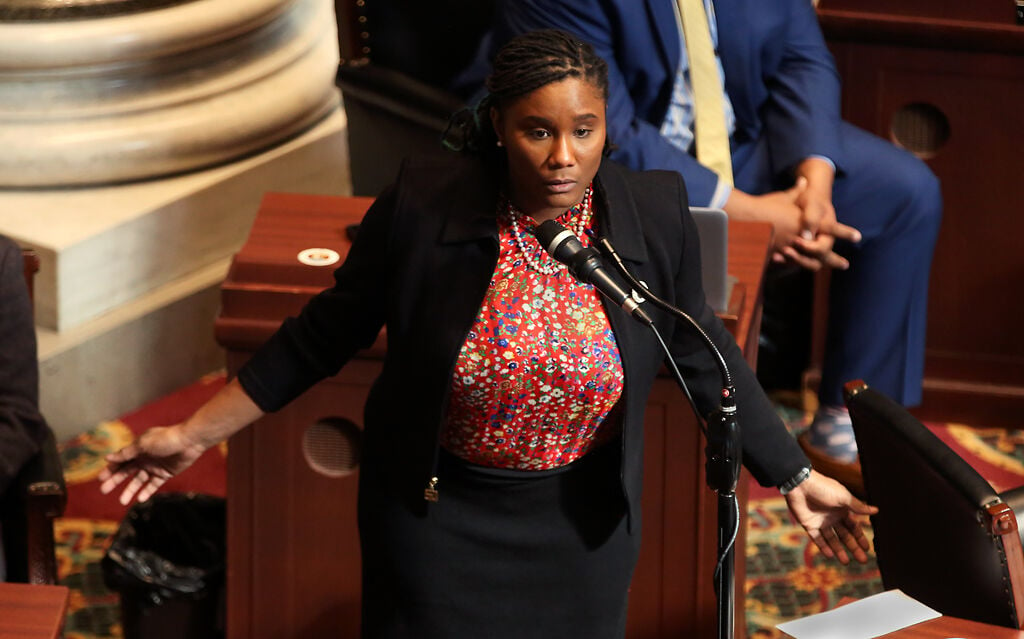
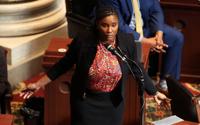
No comments:
Post a Comment